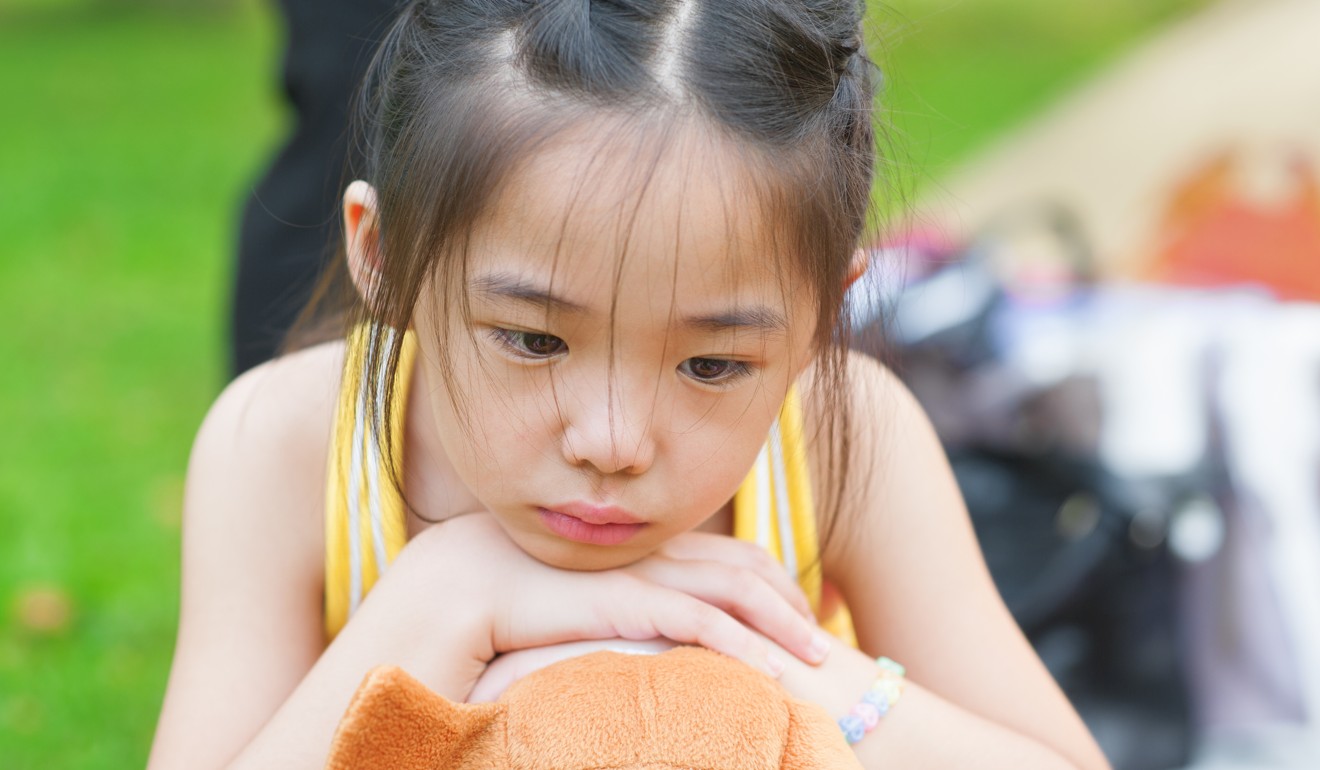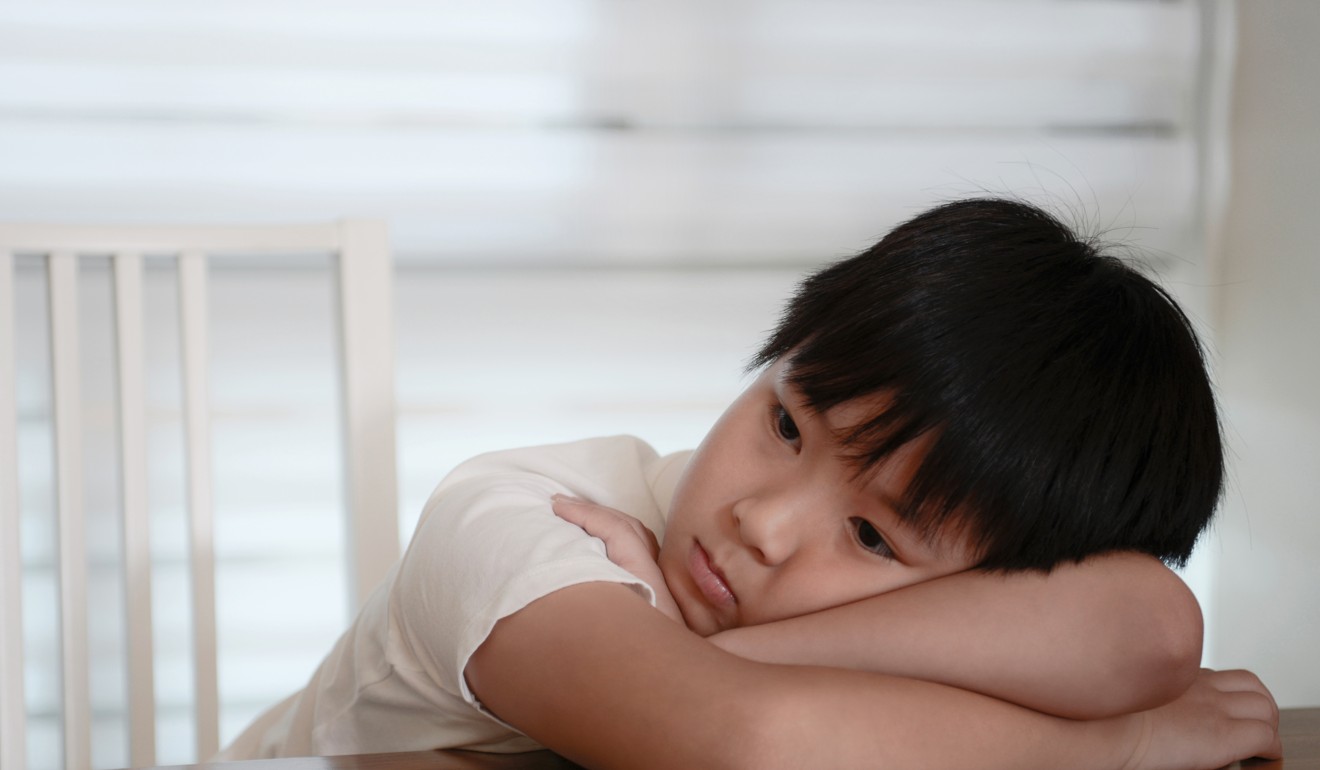
To reduce youth suicide, teach children self-control and let them develop social skills, say experts
Children won’t develop resilience to face adversity if controlling and overprotective parents make all the decisions for them, experts say

What kind of child would you like yours to be?
Child No 1 studies hard and is top of their class. Child No 2 is an academically average student, but physically active and enjoys outdoor sports such as swimming and cycling.
Child No 1 spends most of their after-school hours from Monday to Friday either on homework or revising schoolwork. Their extracurricular activities, all arranged by their parents, include violin and painting lessons, and these activities occupy most of the child’s free time at weekends. This young student rarely interacts with other children outside of school and prefers to play online games in their rare moments of down time after fulfilling all their scheduled commitments.
Child No 2 loves to play soccer with children in the neighbourhood whenever possible, but only after they have finished doing their homework.

Many parents, especially those in Hong Kong, would choose Child No 1. Their life is structured and they accomplish a lot. One might imagine he, or she, has a promising future and is guaranteed to become wealthy and therefore enjoy a good quality of life.
This isn’t necessarily the case, says Paul Wong Wai-ching, associate professor in the department of social work and social administration at the University of Hong Kong.
Children who are taught about self-control know when to play and when to study
“When a child’s life is completely controlled and organised by parents who allow little personal space for them to play outdoors with other kids or explore the world on their own, it’s not a good thing,” Wong says.
“Kids need to interact with their peers in order to learn basic social skills and about themselves so as to [develop] and improve self-control, which is an essential discipline that strongly predicts future personal success.”
Wong says adolescents with low self-control run a higher risk of making bad life choices, picking up bad habits such as smoking and drinking, and could become trapped in lifestyles that cause long-lasting ill effects such as depression and even suicidal tendencies.
He says teaching children and young people self-control promotes positive thinking and healthy living, which makes them less likely to commit suicide.
“Children who are taught about self-control know when to play and when to study, so their lives are more organised. As they get older, they will have a better grip on their lives and hence would be less likely to feel stressed out,” he says.
“We all know that stress, anxiety, and depression are inter-related and are some of the leading causes of suicide.”

Thomas Fung Chak-tong, a social worker who specialises in youth mental health, echoes Wong’s views.
“Teaching children and young people self-control is important, particularly in avoiding addictive behaviours, aggression, and other self-harm and risky behaviours like gambling, heavy drinking and substance abuse.”
Seventy-four children and teenagers committed suicide in 2016 and 2017 in Hong Kong, a statistic in the spotlight today – World Suicide Prevention Day. The day, observed to raise awareness of the importance of suicide prevention, is an initiative of the International Association for Suicide Prevention, of which Wong is a former Hong Kong representative.
Most Hong Kong parents don’t seem to know how to give their kids the right level of freedom to grow into proper independent individuals
Wong says: “Even getting into harmless little fights can be beneficial for kids, because they can then learn how to control themselves, their behaviour, and their temper. Parents should allow some time each day for their kids to do their own things with minimal supervision.
“Just imagine how little room is left for developing basic life skills, let alone self-control, when everything is prescheduled from morning till night. This means children wake up, eat, go to school, eat, study and then sleep like clockwork and with little deviation from their schedule. These fixed routines will not help a child to develop self-control because nothing is in the child’s control.”
The significance of childhood self-control in positively shaping a child’s path into adulthood has been documented by academics conducting the Dunedin Multidisciplinary Health and Development Study.
The study, by a group of New Zealand psychologists, is in its 46th year. It documents every aspect of the lives of 1,037 people born in 1972 and 1973. It found one common determining factor that shapes and affects the long-term well-being of its subjects, particularly in adolescence, is self-control.
The researchers have concluded that the extent to which people develop self-control in childhood determines their health and wealth.
Fung says Hong Kong children tend to live structured and sheltered lives because of overprotective parents, and that makes it hard to develop self-control and other basic life skills necessary to tackle daily challenges.
“Parenting plays an important role here, and sadly most Hong Kong parents don’t seem to know how to give their kids the right level of freedom to grow into proper independent individuals and allow them the opportunity to express their emotions,” Fung says.
Many believe self-discipline should be taught in early childhood, ideally before the age of five. Wong says there are various ways to instil self-discipline.
“One effective method for children is to teach them how to save money because it requires a certain level of discipline when managing one’s finances,” he says.
The best way to help young people develop self-control is to give them a sense of purpose. This can be something as simple as giving them responsibility for something – a simple task such as walking a dog, or a job.
Developing self-control is fundamentally about building self-confidence and finding reasonable boundaries
With funding from the Keswick Foundation, which supports non-profit groups to address social needs in Hong Kong and China, Wong is partnering with three primary schools to promote social-emotional learning and humane education. The project aims to teach students how to control their emotions and behaviour through animal-assisted education activities.
“Even with underachieving youngsters or delinquents, once they are given a certain amount of responsibility, their level of self-control and discipline improves, and so does their mindset. Of course, the outcomes still vary depending on the individual. But very often, an effective way to help boost an adult’s sense of self-control is to put them in charge of something,” Wong says.
Hong Kong parents often rely on foreign domestic helpers or their grandparents for child care. If they do, says Wong, they should allow supervised free time for their children to be independent and learn how to manage their affairs.
As for the role a lack of self-control plays in stress-related student suicides in Hong Kong, Wong says stress can be caused by a variety of things, such as academic pressure, low self-esteem, or a sense of hopelessness. Still, he says concerted action can be taken to deal with student suicides.
Love Our Kids, a charity in Hong Kong that works to prevent student suicides, runs a programme of day retreats. These offer students the opportunity to release bottled-up emotions and gain the courage to tackle everyday obstacles and personal challenges common to their age group.
The programme has reached out to some 20 primary and secondary schools since 2016. Love Our Kids founder Annie Cheung Yim-shuen says: “Developing self-control is fundamentally about building self-confidence and finding reasonable boundaries.”
WHERE TO GET HELP
● 24-hour Samaritans multi-lingual Suicide Prevention hotline: +852 2896 0000
● 24-hour hotline at Suicide Prevention Services: +852 2382 0000
● 24-hour Samaritans Multi-Lingual Suicide Prevention hotline: +852 2896 0000
● 24-hour hotline at Samaritan Befrienders Hong Kong: +852 2389 2222
● Society for the Promotion of Hospice Care: +852 2868 1211